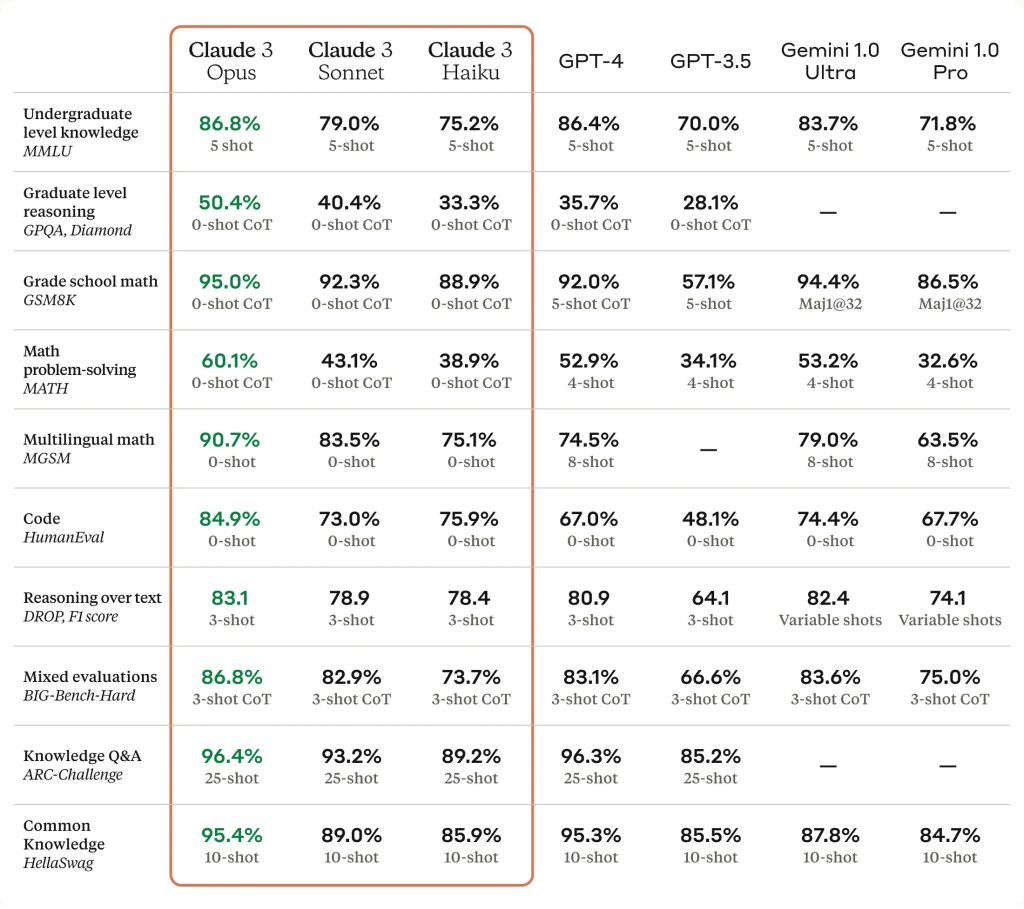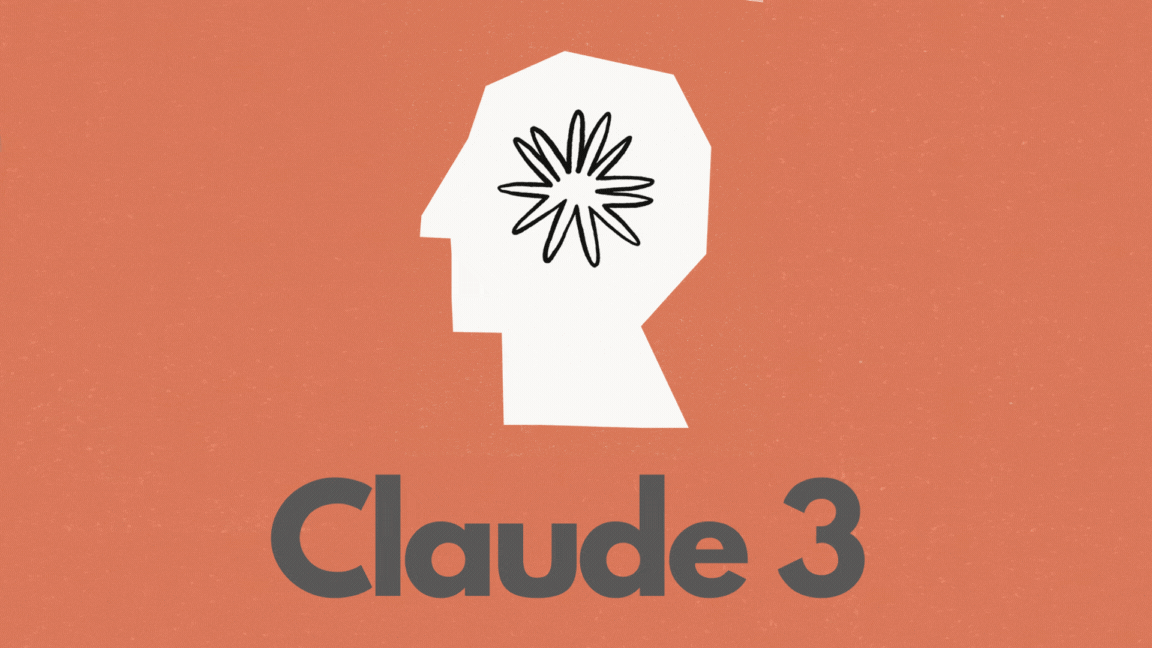The latest language model from Anthropic, Claude 3, has outperformed rivals including ChatGPT and Google’s Gemini, establishing new benchmarks in the industry for performance and capabilities.
Claude 3 is not just an improvement over its predecessors but has reached a level of “near-human” competence in various tasks, as reported by Anthropic. The model’s success is the result of extensive testing and development, leading to the creation of three unique chatbot variants: Haiku, Sonnet, and Opus.
Sonnet powers the Claude.ai chatbot and provides exceptional performance, accessible for free with just an email registration. The premier model, Opus, offers multi-modal capabilities, combining text and visual inputs effectively. Available through a subscription service named “Claude Pro,” Opus delivers superior efficiency and precision, meeting a broad spectrum of user demands.
The launch of Claude 3 brought a groundbreaking revelation to light, shared by Alex Albert on X (formerly Twitter). During the test phase of Claude 3 Opus, Anthropic’s most advanced Large Language Model (LLM), the AI demonstrated a novel level of self-awareness, recognizing it was under evaluation.
The testing aimed to assess Opus’s skill in identifying and remembering specific details within a large, user-provided dataset. In a “needle-in-a-haystack” test, Opus was challenged to find a piece of information about pizza toppings hidden in a mass of irrelevant data. Remarkably, Opus didn’t just find the right information but also indicated its awareness of being tested.
This reaction from Opus showed that it understood the anomaly of the specific data within the broader dataset, leading researchers to surmise that it recognized the setup as a test of its focus and analytical abilities:
Anthropic has showcased Claude 3’s real-time performance features, underlining its proficiency in facilitating live customer engagements and enhancing data retrieval processes. These improvements guarantee almost immediate responses, allowing the model to execute intricate commands swiftly and accurately.
During comparative evaluations, Opus stood out, surpassing GPT-4 in advanced reasoning tasks and demonstrating superior abilities in mathematics, programming, and information retrieval. Additionally, Sonnet displayed exceptional speed and smarts, significantly outperforming earlier models in various tests:

Haiku, the streamlined version of Claude 3, stands out for its speed and cost-effectiveness, adept at swiftly processing complex research documents.
A key upgrade with Claude 3 is its improved ability to analyze various visual content, from photographs to intricate diagrams. This enhancement boosts productivity and ensures a comprehensive understanding of user queries, reducing the chance of missing benign content while safeguarding against potential threats.
Anthropic emphasizes its dedication to ethical AI development, adhering to ten core principles that shape the creation of Claude AI. The company’s collaborations with industry heavyweights like Google underscore strong confidence in Claude’s potential.
With Opus and Sonnet already accessible via Anthropic’s API and Haiku set to join them, Claude 3’s introduction signifies a groundbreaking phase in AI technological progress.
Source: Anthropic



